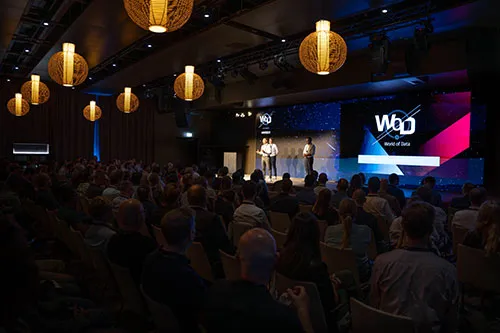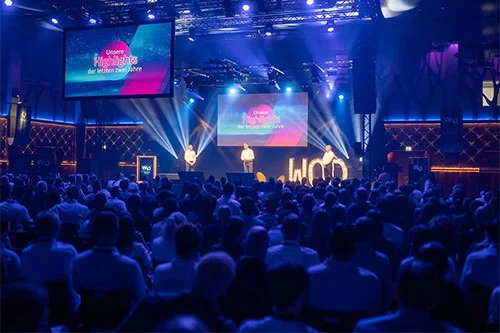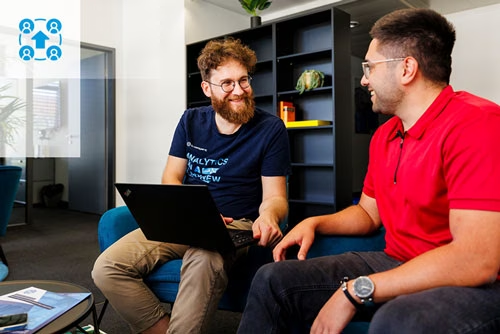Solution Strategy
By means of an MRM tool tailored to the customer's needs, a significant increase in efficiency can be achieved. This is particularly noticeable in the process support and the substantially faster coordination of the participating resources. An open collaboration and workflow platform which has various self- service elements and communication functions is the central element here. Participating departments and operative processes are structured according to functional entities and integrated after an end-to-end process analysis. By means of this, a joint integration of the various information, forecasting and booking systems in the media forecasting process and the interaction between advertisement customer, customer consultants, creative agencies and publishers is achieved. In addition to the fields of action, a media specific knowledge management tool is specified and embedded into the processes.
The Objectives of the Project are defined as follows:
The objective of this MRM project is to analyse the requirements and to derive the target specification of a collaboration platform with self-service areas for the complete cross-medial media forecasting process with geo-analysis focus. In addition, the specification for a media-specific knowledge database for collecting and providing knowledge on the regional media availabilities and a concept for a document management system which offers auditing acceptability is created.
Approach
- Analysis of the entire regional cross-medial media forecasting proces
- Analysis of the data and system architecture
- Structuring the processes into functional entities
- Optimization and description of the processes per function block
- Deriving requirements and features
- Creation of mock-ups and presentation of underlying workflows
- Finalisation of target specifications
Key Learnings
Employees in operations and the respective management level of the participating departments should all be involved in the analysis. This, and an additional intensive communication of the project within the business, improve the quality, practicability and feasibility of the developed requirements and thus supports a successful change management.
For a successful specification a coordinated consent of all involved parties regarding the target status is required in the course of recording the processes. This supports the effective and efficient recording requirements related to collaboration and workflows in the analysis. The presentation of interim results and development levels via mock-ups and click dummies improves the communication of the planned workflows and accelerates the articulation and quality of the requirements in the development process.
Outlook
The implementation of an MRM collaboration system supporting the consulting process in media forecasting creates more efficient workflows and thus reduces the process costs. After the establishment of the new processes, the integration of further departments of the business should be tackled. The integrated view on the existing information, targeted analytics and the creation of add-on intelligence thus made possible may help to improve further potentials for the increase of the competitiveness by targeted management of the business resources.



















